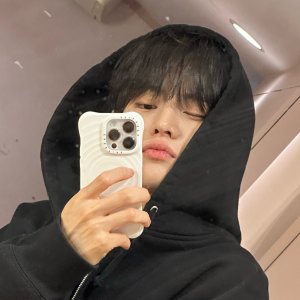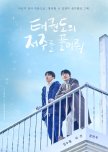
Kicks and Quirks: A Drama that Lands the Right Punch
Let Free the Curse of Taekwondo is another refreshing addition to the scarce list of Korean BLs this year, a category that has increasingly leaned toward coming-of-age narratives with romantic undertones. Much like its contemporaries (The Trainee and The On1y One), the story remains impactful even when the romantic elements are secondary, proving that a well-crafted journey can stand on its own.The drama’s simplicity makes it easy to consume, yet it never sacrifices depth. Starting with familial conflicts and transitioning to themes of personal, societal, and romantic growth, it delivers a balanced narrative arc. It does not overwhelm but rather harmonizes these elements beautifully, leading to an emotional and satisfying conclusion.
After Do Hoi left, the plot seemed to focus on Ju Yeong’s personal growth, but as the story unfolded, it shifted toward Do Hoi’s personal baggage and the complexities of their relationship, including the involvement of Hyeon Ho. While handled lightly, these arcs still packed a solid emotional punch.
The scriptwriting particularly stood out, with lines that resonated deeply. For example, Do Hoi’s emotionally charged exchanges with Ju Yeong — including the unforgettable “We’ve found love that others take a lifetime to find. That’s a big deal” — showcased the strength of the writing, evoking genuine responses from viewers.
The directing, helmed by the genius behind To My Star, Blueming, and Where Your Eyes Linger, elevated the material to artful levels. Combined with Korea’s trademark for excellent cinematography in BL dramas, the visual presentation was nothing short of breathtaking.
However, there were some shortcomings. Certain scenes lacked emotional weight, undercutting their potential impact. The editing was uneven at times, with abrupt cuts and poorly-timed transitions disrupting the narrative flow. Familiar tropes, such as the stereotypical “abusive father” and the overused “I bullied you because I like you” antagonist, felt predictable and underwhelming. Additionally, the Taekwondo element, while relevant to the characters’ growth, was somewhat scattered in execution.
On the brighter side, the romance was delicately and genuinely portrayed, with intimate moments that felt both authentic and moving. The leads, who communicated profound emotions through their eyes alone, delivered stellar performances. Their chemistry was palpable, particularly in their non-verbal exchanges, exemplified by lines like “Everything that was obscure is now clear to me.” Small Easter eggs, such as the reappearance of To My Star 2’s Ti Aspetto location, added a nostalgic charm.
One criticism raised by some viewers is the seemingly anticlimactic ending. While it might feel understated, not every drama aims for a sequel-worthy cliffhanger. This series chooses to conclude on a sweet and genuine note, encapsulated beautifully when Do Hoi sees Ju Yeong’s search history as they begin opening up to one another. It’s a tender moment that speaks volumes, perfectly summarizing their journey of understanding and connection.
Ultimately, the story’s most resonant theme was the idea of having someone who supports and celebrates your growth as their own. It’s this deeply human connection that elevates the drama beyond a simple BL romance, making it a heartfelt watch. While not overly complex, Let Free the Curse of Taekwondo delivers an emotional payoff that lingers long after the final scene.
Was this review helpful to you?
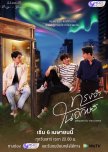
Beyond the Reflection
When I first came across the ending scene of Memory in the Letter, where Kyo openly confessed to Aksorn’s father that they were in a relationship, I was immediately intrigued and knew I had to watch it. However, seeing that the series only had six episodes left me a bit disappointed, especially since most Thai BLs typically span 12-14 episodes. Yet, understanding that it wasn’t backed by a well-known company, I set aside my expectations and delved in, eager to see what it had to offer.The series’ premise is quite unconventional, offering a blend of romance and intrigue that keeps you thinking. This type of storytelling stood out and made it one of the more enjoyable dramas I’ve watched this year. The plot carried enough surprises to keep me engaged, especially the twist that Songjam was actually Kyo all along. It was an unexpected revelation—I initially believed Kyo was a standalone protagonist in the Aksorn and Songjam narrative, but that twist added a clever layer of depth to the story.
One of the strongest aspects of the drama was how Kyo/Songjam allowed Aksorn to uncover the truth gradually. The way this part of the plot was handled kept the story flowing while maintaining an air of mystery. I appreciated that they didn’t immediately resolve the identity revelation; it gave the drama more room to breathe. I genuinely thought the moment when the mirror broke and Songjam disappeared would lead to a dramatic scene where he would reappear behind Aksorn once he realized what had happened, but the plot chose a more subtle route, which worked well.
However, not all aspects were flawless. For example, the scenes involving Peach’s stalking were unnecessary and felt out of place once she noticed the similarities between Aksorn in the novel and real-life Aksorn.
Reflecting on my initial disappointment with the limited episode count, I couldn’t help but wish the story had been given more time to unfold. The premise was rich with potential, yet certain intriguing questions were left unanswered. For instance, if Aksorn’s mother wrote the story involving Songjam and Aksorn, how was Aksorn initially able to see Songjam before he teleported to the present world? Why did Songjam arrive years before Aksorn encountered him, and why didn’t Songjam make it clear that Aksorn’s mother was the story’s author? These gaps could have been explored further to enhance the narrative’s complexity.
Despite these loose ends, the series achieved its primary goal: telling a story that was both coherent and captivating. It managed to tie everything together enough for viewers to understand the plot, even with the untied threads.
The leads were visually appealing, especially Parky, who played Songjam/Kyo. His looks had me gushing throughout the series, and it wasn’t until later that I realized how well he and Can’s visuals complemented each other.
One recurring issue, however, was the awkward execution of intimate scenes. It’s 2024, and the era of side lip kisses and stiff, hesitant interactions belongs to the 2015 days of Love By Chance and SOTUS. In a time when on-screen romances have become more genuine and Thailand has made significant strides in LGBTQ+ representation, such stilted moments felt out of place and a bit frustrating.
All things considered, the drama had strong points: a compelling plot, impressive cinematography, and solid acting. It wrapped up well, leaving me satisfied and excited for future projects from the cast.
Hopefully, I’ll even get the chance to attend their fan meet in the Philippines next year!
Was this review helpful to you?

IT WAS JUST LOVELY
Having just finished "My Stand In," where Up (Gene) delivered a captivating performance, I was curious to explore his earlier work in "Lovely Writer." While both series feature Up in leading roles, "Lovely Writer" adopts a decidedly lighter tone. It's a charming and heartwarming watch, perfect for unwinding after a long day. However, when compared to the depth and complexity of "My Stand In," "Lovely Writer" feels a touch less substantial.The characters in "Lovely Writer" are a delightful bunch. Up portrays Gene, a university student who dreams of becoming a novelist. He's paired with Kao, played by Kao (Nubsib), a fellow student and aspiring actor. Their journey from initial misunderstandings to a blossoming romance is both endearing and entertaining. However, the series falters slightly in its character development. The central conflict, where their relationship faces disapproval from their parents, is resolved rather quickly, leaving some room for a missed opportunity in terms of emotional payoff.
Another character, Aoey, initially comes across as sweet and supportive of Gene. However, his personality takes a peculiar turn later in the series, bordering on cringe-worthy and out of character. This inconsistency could have been rectified by giving Aoey a more defined antagonistic role. Up's performance is commendable, though it leans towards a more reserved portrayal compared to his more dynamic role in "My Stand In." Kao delivers an acceptable performance, but his character could have benefited from greater depth in his expressions. The supporting characters, including Gene's and Nubsib's families, are portrayed by familiar faces from Thai dramas and add a touch of warmth to the narrative. Notably, the revelation about Gene's father having a boyfriend before marrying his mother sheds light on his initial resistance to accepting his own relationship with Nubsib.
The plot of "Lovely Writer" revolves around the blossoming romance between Gene and Nubsib, fueled by their shared passion for storytelling. The series incorporates the unique concept of their fictional novel reflecting their real-life experiences. This adds a layer of meta-humor and keeps the narrative engaging. However, some conflicts, such as the aforementioned parental disapproval, are resolved rather swiftly, diminishing the potential for emotional impact. The series also introduces the intriguing character of Mhok, who could have played a more significant role in influencing Aoey's character development. An interesting aspect of the drama is the inclusion of a scene where producers, directors, and the CEO intervene to discuss the future of Gene and Nubsib's relationship. This scene adds a touch of realism, reflecting similar situations that might occur in the real BL production world.
"Lovely Writer" is a light and enjoyable watch, offering a delightful escape into the world of BL novels and budding romance. While the series stumbles slightly in its character development and occasional pacing issues, it makes up for it with its charm and feel-good atmosphere. If you're looking for a heartwarming and relaxing drama, "Lovely Writer" is definitely worth adding to your watchlist. However, if you crave something with more depth and emotional complexity, you might find "My Stand In," featuring a more nuanced performance by Up, to be a more satisfying choice.
Was this review helpful to you?

It was GOOD until it became confusing
"Jazz For Two" boasts a standout cast, featuring talented rookie actors who inject freshness into the series. However, the limited run time of only 8 episodes feels insufficient to fully explore the depth of the storyline, resulting in a rushed narrative that struggles to allow viewers ample time to absorb crucial story details.Backstories lack depth, with some introduced too late in the series to have a significant impact. The development of the main couple's relationship feels abrupt, lacking sufficient buildup, while the supporting couple's storyline is underutilized and would benefit from more screen time or a separate project to fully explore their dynamics.
Conflict resolutions are often too quick, leaving little room for tension or emotional payoff, such as a crucial moment where Tae Yi misinterprets Se Heon's intentions.
The series could also benefit from more exploration of the relationship between classical music and jazz and further delving into the characters' motivations.
Nonetheless, the friendship between Tae Yi and Do Yoon shines, portraying a ride-or-die dynamic that adds depth, while Do Yoon's unwavering support for Se Heon highlights the strength of their bond.
Cameo appearances from "A Shoulder to Cry On" provide enjoyable fan service and a hint of nostalgia. Regarding the "proper kiss" issue in the early episodes, it's likely a creative direction from the production team rather than a reflection of the actors' abilities. The exceptional OSTs add a magical touch to the series.
Despite its shortcomings, 'Jazz For Two' remains entertaining, with the potential for a Do Yoon x Joo Ha spin-off, which would be eagerly welcomed.
Was this review helpful to you?
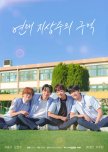
Loved it!
The casting for 'Love for Love's Sake' is undeniably superb. Lee Tae Vin's portrayal of Tae Myung Ha is solid, fitting seamlessly into the role. Cha Joo Wan brings a delightful charm to Cha Yeo Woon, though some moments may come off as cringy, his genuine approach adds an endearing quality to the character. Meanwhile, Oh Min Su and Cha Woong Ki deliver commendable performances as Chun Sang Won and Ahn Kyung Hoon, respectively.However, the love triangle involving Myung Ha, Yeo Woon, and Sang Won could have been explored further. It felt as though the resolution came too abruptly, leaving much potential unexplored. Additionally, the decision to portray Sang Won and Kyung Hoon as cousins rather than potential love interests reflect South Korea's hesitance to fully embrace BL narratives.
Despite these shortcomings, the acting throughout the drama remains authentic, with no forced moments evident. While some scenes could have benefited from a longer runtime to allow for deeper exploration, the overall execution is commendable. Although the game concept could be further developed, the production team utilized their resources effectively, resulting in a satisfying drama experience
Was this review helpful to you?

Candid Charms of TayNew
"Cherry Magic," the Thai adaptation of the popular Japanese BL series, introduces Achi, an ordinary employee who discovers an extraordinary power on his thirtieth birthday – the ability to read minds through physical contact. Portrayed by Newwie, known for his role in "SOTUS" since 2016, it's evident that he has grown as an actor, delivering a commendable performance. His chemistry with Tay, who plays the charming colleague Karan, brings freshness to the screen, particularly for me who's accustomed to seeing Newwie with Earth (my last BL with Newwie starring on it)Tay's portrayal of Karan is engaging, although lacking a point of comparison since I haven't seen him in previous dramas. The storyline follows Achi's struggle to navigate his newfound ability, especially after unintentionally uncovering Karan's feelings for him. While the Thai adaptation stays faithful to the original premise, there are moments where the pacing feels sluggish, making some parts of the series less captivating.
One aspect that stands out is Newwie's handling of intimate scenes. Despite his experience, there's a noticeable awkwardness that detracts from the authenticity of those moments. However, it's worth acknowledging that this could be a result of various factors, including character dynamics and personal comfort levels.
Overall, "Cherry Magic" offers a decent adaptation for fans of the BL genre, with strong performances from its leads. While it may falter in pacing at times, it's a refreshing addition to Thai BL dramas, showcasing both familiar faces and new talent in the genre.
Was this review helpful to you?

BREATH OF FRESH AIR
I came across "A Breeze of Love" on Tiktok, and considering I've already watched 43 Korean BLs just this year, my options will either be to venture again with Thai BLs or just wait for any Korean BL releases this year or next year.To be honest, the pacing of the drama is "okay-ish" since the main focus is the main leads and their story. But considering how limited the run time is, especially for Korean BLs, they didn't manage to squeeze in any back story aside from the short flashbacks here and there.
1. The cinematography is great; there are some hiccups on some parts (and that's me nitpicking).
2. The plot is open for improvement.
3. The OST songs threw me off on some scenes; there are parts of the scene that really didn't require any emotional music, but I could accept their creative choices.
4. The run time could've easily been extended to ten episodes. This will focus more on understanding what happened after they became a couple.
This drama did not offer anything new (especially on the kinds of KBLs released this year), but you wouldn't hold it against them because, at the end of the day, a good drama will stand without any gimmicks.
Recovering from Bump Up Business, A Breeze of Love did end up meeting my expectations—a simple breath of fresh air.
Not too overcomplicated, just a good Korean BL.
Was this review helpful to you?

Burning Justice paired with Ice-Cold Chemistry
Judge From Hell delivers a captivating mix of fantasy and thriller, setting itself apart from other Korean dramas this year. The storyline is engaging and provides a refreshing approach, making it an entertaining watch for fans of the genre. Despite some predictable moments, the plot remains solid and well-executed.One downside was the prevalence of spoilers circulating on social media before the drama’s release, which slightly dampened the element of surprise. However, the show’s overall quality was unaffected, offering a rewarding viewing experience. The production benefitted significantly from its star-studded cast and budget, ensuring the drama met expectations both visually and narratively.
Park Shin Hye shines once again in her role as Kang Bit Na. Her experience and talent are evident, with her performance carrying much of the drama’s emotional weight. Fans familiar with her previous works, such as Doctors, will find her portrayal here equally impressive. On the other hand, Kim Jae Young, as Han Da On, delivered a commendable performance, proving himself a solid counterpart to Shin Hye’s character.
However, the lack of chemistry between the two leads was noticeable. While romance wasn’t the central focus of the story, the subplot felt underwhelming due to the absence of a genuine connection between the characters. This aspect might leave some viewers wanting more from their interactions.
The supporting cast added depth and intrigue, complementing the main narrative well. However, some unresolved questions linger, such as the fate of Kang Bit Na’s original soul and her reasons for calling off her engagement. These ambiguities might leave viewers speculating long after the final episode.
Overall, Judge From Hell is a satisfactory drama that excels in many areas, from its compelling plot to its standout performances. While not without flaws, it remains a worthwhile addition to this year’s lineup of Korean dramas, offering an entertaining and thought-provoking experience.
Was this review helpful to you?
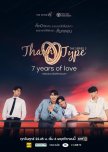
Some good laughs but didn't sell.
"TharnType: The Series" garnered acclaim during its release year; however, revisiting it in 2024 reveals a somewhat disappointing experience. Perhaps the series' reception was influenced by the demographic and the state of BL genre development in 2019, which may have been less mature compared to later years.The casting and storyline, while adequate, fail to leave a lasting impression, lacking the depth necessary to captivate viewers who have since been exposed to more refined offerings within the genre. Despite its initial acclaim, the series falls short in providing substantial character development beyond surface-level exploration, particularly in its handling of conflicts and narrative pacing.
Furthermore, the editing issues and excessive focus on intimate scenes detract from the overall viewing experience, making it difficult for the series to strike a balance between romantic elements and a cohesive storyline. While "TharnType: The Series" may have resonated with audiences in its time, it ultimately struggles to hold up to the evolving standards of the BL genre, leaving much to be desired for viewers seeking a more nuanced and engaging narrative.
Was this review helpful to you?

the love we think we deserve
Before its release, Love in the Big City faced a lot of pushback and controversy. I admire the production team’s dedication in bringing this story to life despite the challenges.South Korea, like many places, still harbors prejudice toward LGBTQ+ themes, and BL dramas often face additional scrutiny. But it’s disappointing that this artistic expression, which reflects real experiences for so many in the LGBTQ+ community, would encounter so much resistance. This is the reality for countless people, and I can’t understand why two men sharing a love story on screen is any different from the heterosexual stories we’ve seen for years. Why should it be restricted when it’s simply another story about connection, pain, and growth?
Nam Yoon Su’s performance is a standout and exceeded my expectations. His portrayal was nuanced, layered, and showed a clear dedication to understanding and honoring his character’s experiences. It’s refreshing to see a character like Go Young evolve in multifaceted ways, allowing us to see vulnerability, strength, and a journey to self-understanding that isn’t one-dimensional.
Nam Yoon Su didn’t just bring Go Young to life; he made him feel relatable and genuine, and it’s clear he did his homework preparing for this role.
I’d been keeping Love in the Big City on my watchlist for a while, anticipating what the series would offer. When it was finally released, it delivered the satisfaction I expect from a well-made Korean drama. I’m not someone who often reads the original source material, but judging from feedback and reviews, it seems like the production team really respected the story’s roots. They captured the essence of the characters and crafted a realistic, engaging portrayal that felt true to the lives and relationships it was representing. I’m glad they paid attention to the finer details that make characters feel real, without compromising or simplifying their struggles.
The storyline can be complex and might feel a bit chaotic to those who prefer a straightforward plot. In reality, though, the mixed pacing and emotional highs and lows added a raw authenticity. Love in the Big City is definitely a roller-coaster of emotions, from heartfelt to heart-wrenching, with steamy and even uncomfortable moments mixed in. This range, I think, is part of its charm—it doesn’t sugarcoat relationships or emotions. Each of Go Young’s love interests brings their own traumas and past scars, adding depth to the plot and enhancing the storytelling. Their baggage isn’t there just for drama; it plays a role in their development and helps paint a fuller picture of who they are.
Despite initial expectations that it might lean into a sex-driven narrative, the series proves itself to be far more meaningful. It balances intimacy and substance thoughtfully, presenting a story that is about much more than physical attraction. As someone in the LGBTQ+ community, I found certain elements hit home, especially in how Mi Ae and Go Young’s partners portrayed their relationships and the complexities within them.
There’s a rawness here that resonates, particularly in Go Young’s romantic pursuits, which examine the universal truth that overfamiliarity can slowly erode relationships. His interactions with both Gyu Ho and Nam Gyu show how desire and boredom intertwine, a reality that often mirrors many modern-day relationships.
The chemistry among the actors was undeniable; nothing felt forced or out of place. Even the sensual scenes were handled delicately, with genuine connection in their kisses—a refreshing change from the lackluster, “fake” kisses we’ve seen in the past.
One of the most profound themes Love in the Big City explores is the idea of “the love we think we deserve versus the love others are actually able to give.” We often go through relationships looking for something specific, believing in an ideal form of love. But at the end of the day, real love is about mutual understanding, and we have to learn to accept the love that aligns with who we are. My only disappointment is in Go Young’s character arc; while he found solace and support among friends, I wanted to see a more resolved arc for him—a deeper, more satisfying exploration of self-love and fulfillment beyond friendship. The series does so much right, but leaving Go Young’s development open like that left me wishing for a bit more closure.
Was this review helpful to you?

